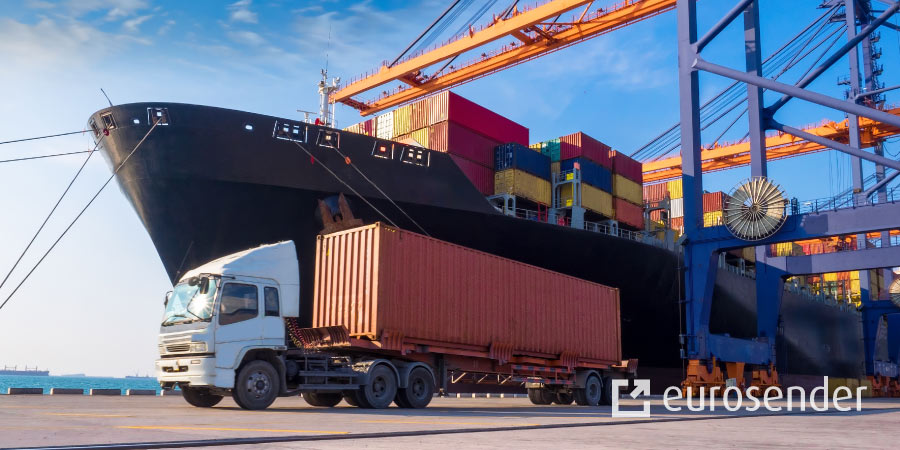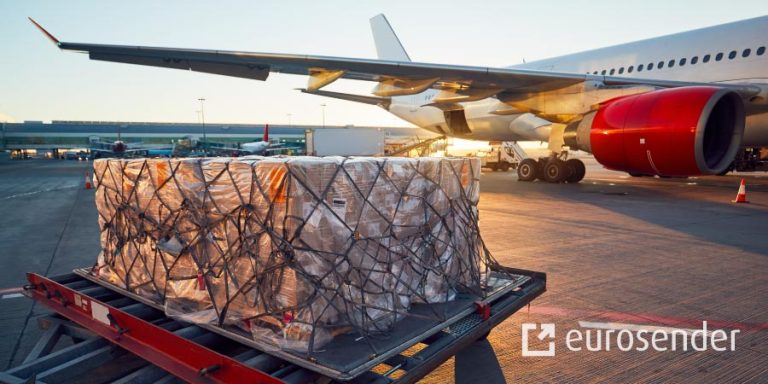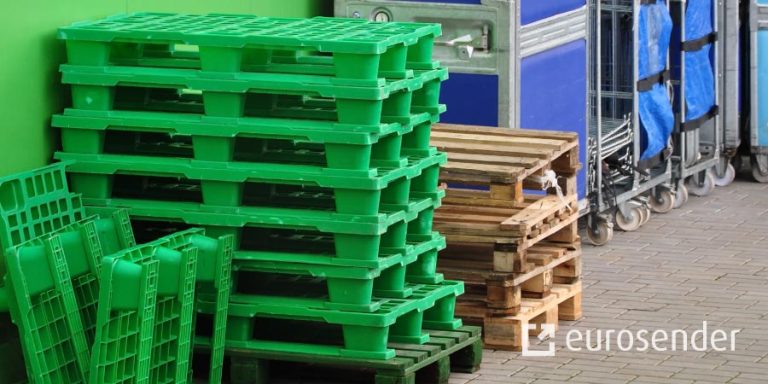What is total landed cost, and how is it calculated?
TL;DR
- Landed cost is the total expense of purchasing and transporting a product, covering costs like goods sold, shipping, customs duties, and insurance.
- Accurate calculation of landed cost is essential for setting prices, budgeting, and maintaining profit margins.
- Understanding landed cost helps identify supply chain inefficiencies and informs purchasing decisions.
- Reducing landed costs can be achieved by optimizing suppliers, warehousing processes, and utilizing competitive shipping rates.
The meaning of landed cost in shipping is the total cost of purchasing an item and transporting it from the country of origin to the location in which it will be sold. The term often refers to costs connected with international shipping, such as taxes, insurance, customs fees, etc. Find out what total landed cost is, why it is important, and how to calculate and reduce it.
Create an account for free!
What is the definition of landed cost in shipping?
Landed cost is defined as the cost associated with a product and its shipment. It is the value that combines all costs associated with selling a product, considering not only the product price, but also all customs and shipping related processes.
Costs that are not related to the product itself, such as production facility energy bills and operational software, are not included when calculating the landed cost of said product.
Pay close attention as you will also see landed cost referred to as “total landed cost”, “net landed cost”, or “landed price”. These terms are all synonyms and refer to the same thing.
What factors are included in the landed cost?
To help you better understand what landed cost is, here are some of the things that are included in the landed cost of your goods:
- Cost of goods sold (COGS) i.e. the original price of the goods
- Shipping fees (domestic and/or international)
- Customs
- Duties/taxes
- Risk
- Tariffs
- Insurance
- Currency conversion (if applicable)
- Crating and packing costs
- Handling costs
- Warehousing and storage
- Other overheads, such as utilities
- Payment processing fees
Other factors not listed above may also be included in the total landed cost. You should consider additional variables that apply to your own business or industry that may increase the landed cost of your goods.
You may also be interested in:
- Shipping solutions for e-commerce
- Setting up your e-commerce logistics
- International shipping for e-commerce
Why is landed cost important for your e-commerce business?

Landed cost is an essential calculation for e-commerce and small businesses. Some of the factors mentioned above are more important than others. Let’s examine some of these in depth:
Cost of goods sold (COGS)
This is the cost of an item that you either manufacture or purchase from a supplier. The COGS includes raw materials, labour and manufacturing costs, as well as overhead costs such as utilities and warehousing.
Your COGS is an important step towards calculating the landed cost of your item. However, please note that these two terms do not mean the same thing. You will use the COGS in order to calculate your total landed cost.
Transport costs
Shipping, which encompasses other factors such as crating and handling, is the primary factor in calculating your landed cost. One of the aspects of shipping costs to be considered is how fast you need the product to be delivered. In almost all cases, express shipping leads to increased costs. For this reason, you will need to determine whether you will be using mostly express shipping or regular shipping services.
Another important aspect of the shipping cost is the agreed Incoterms between seller and buyer. You should always understand exactly what is included in your shipping contract, especially both parties’ responsibility and liability.
Continue reading:
Customs and import duties
International shipping brings the necessity of paying customs fees and import duties. These can be paid by the seller or buyer, depending on the chosen Incoterm. Every country has specific regulations and fees associated with importing and exporting goods, and these costs should be added to determine the total landed costs.
Therefore, customs is an important factor to be taken into account when calculating your landed cost for international shipments.
Insurance and risk
Insurance coverage is technically optional, although it is highly recommended in freight shipping, especially for high-value cargo.
CMR insurance is already included in the price of all road freight shipments with Eurosender, but if the seller or buyer decides to purchase additional cargo insurance, the price of this coverage should be included in the landed cost.
Read more about:
Handling and loading fees
Depending on the goods and policies of the carrier, there may be extra charges for handling the cargo and using loading docks at their warehouses. These operational factors are the final part of the landed cost calculation.
Why should your business calculate landed cost?
Understanding landed cost is very important for your business to be profitable and grow. You should accurately calculate the landed cost of your products because it can impact:
- Budget and product pricing – It is not enough to calculate just manufacturing and shipping costs. The other factors listed above need to be taken into account to know the true cost of your product (a.k.a. the landed cost). Make sure you are budgeting and pricing your products correctly to keep profit margins high.
- Supply chain efficiency – Landed cost can highlight problems with your supply chain and help you understand how to improve efficiency. One way to solve inefficiency and reduce shipping costs is to find an alternative carrier or choose a different mode of transport for your products. Eurosender can help you with this if you want to optimise your landed costs.
- Purchasing and shipping decisions – Monitoring landed costs can help you identify opportunities to reduce your shipping expenses. When comparing competitive rates, calculate the landed cost first to help you make informed decisions. For example, an imported product with a lower cost per unit may seem like a better deal compared to the same item purchased domestically – until you factor in shipping and customs fees.
How to calculate the landed cost of imported goods?
You can calculate the landed cost of imported goods with this general formula:
Manufacturing + Shipping + Customs + Insurance + Other fees = Landed Cost
It is important to calculate landed costs properly to ensure you are making wise business and budgeting decisions. If you estimate too high, you may lose sales or existing customers because of your high prices. On the other hand, if you estimate too low, your profit margins may decrease significantly.
How to reduce landed costs for your business
Here below are some ways you can reduce the landed cost of your products:
- Check for different suppliers – This may be tricky depending on how many suppliers you can choose from. However, if you can reduce your COGS, this can significantly reduce the landed cost of your products.
- Optimise your warehousing – If you are unable to get a storage facility closer to your customers, a practical way of reducing the landed cost of your products is to optimise your existing warehousing processes. The more efficiently your inventory can be processed, the more you will be able to reduce the total landed cost of your items.
- Save costs with Eurosender – We work with a vast network of reliable carriers and offer some of the most competitive rates on the market. We can tailor solutions to your business, so you get exactly what you need. Our Direct Courier Service is a great way to eliminate some landed cost factors, such as handling and warehousing.
Interested in learning more about pallet and freight shipping? Check all our articles about pallet deliveries.
Create an account for free!
About the author






